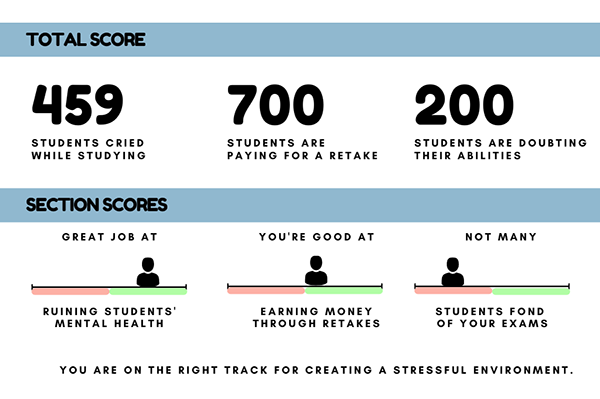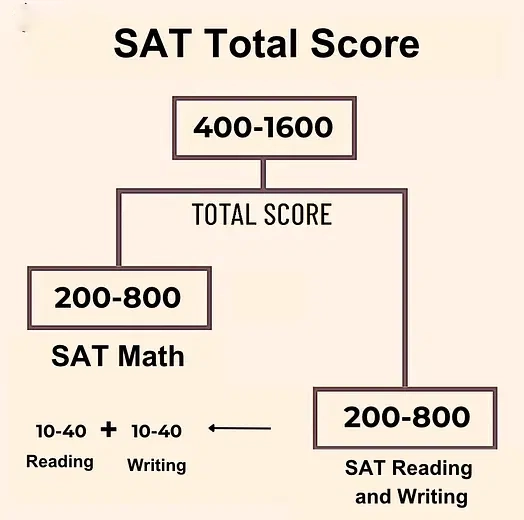
In higher education, standardized testing has been a long-standing means and major role used in determining the academic prowess and potential of applicants and students. From SATs and ACTs to GREs and GMATs, these tests have become— for better or worse— a necessary stage in modern schooling.
Interestingly, there has been and remains a debate amongst educators as to the necessity of certain standardized testing.
Regardless of that issue, there is still a major part of the higher educational path, and will likely remain for generations to come, or until there are new methods of assessment developed. As such it is noteworthy for any parent, prospective student, or interested graduate applicant to understand the whole process.
So, here is its brief summary as well as some helpful tips for greater success when taking these exams.
Higher Education Standardized Testing
Standardized testing most often refers to a series of formal exams that are administered both throughout K-12 and eventually in a more formal sense before undergraduate or postgraduate education.
The tests— organized, developed, facilitated, and scored in strict settings— generally employ the use of predictable and replicable sets of questions. Each of such questions are based upon a subject with its own set of instructions.

These assessments are designed with the goal in mind of attempting to measure a student’s knowledge. With knowledge, it is clear about the skills in the more common areas of scholastic education such as science, math, reading comprehension, and history.
The predictability of these questions creates a standard measurably by which scores, and eventual rankings can be derived which tend to translate as both a means of predicting and assigning relative value to students.
The Purposes of Standardized Testing
The thought processes involved in the development are meant to provide a societal standard of measurement. What is measured? To be precise, student’s general aptitudes and preparedness for higher education. Designed as a means by which to evaluate a variety of intellectual skills, problem-solving abilities, and subject knowledge.
They are arguably predictors for success or struggle in certain career choices, like becoming an engineer or family nurse practitioner. Also, these tests are controlled, predictable, and replicable as a means of being easily utilized by a number of educational organizations.
Despite its longstanding and often demanded participation for modern school systems, it has been, and remains, a tensely debated topic within educational spheres. Whereas some argue that it’s necessary as a tool by which to measure, keep track of, and monitor student engagement.
Comprehension and success within a given subject, critics believe such tests place unrealistic standards, and avoidable stress on students.

Standardized exams like SAT follow a particular format such as one mentioned above
Simply put, some people are much better at written memorization and recall than creative thinking or reasoning. On the other hand, many still thrive under the pressures inherent to testing. Another category of people freeze and, despite genuinely knowing the information, struggle to prove their knowledge and intelligence. Thus, such simplistic and limited testing means fail consistently and to accurately assess test takers’ full potential.
There are a few main categories that may be inferred as being the point of standardized testing, they are as follows:
- Assessment of student learning and academic achievement, educators hope to gather data that points to the grasp and retention of key concepts and skills.
- The test is also used to hold school districts accountable for the quality of education they provide. Group test scores help identify areas of possible improvement that can guide decisions made by the school and district levels.
- Standardized tests such as the common SAT and ACT are used in college admission. Test scores communicate to colleges and universities measurements of a student’s possible intelligence and acumen, helping to determine if to extend acceptance offers.
As such, the importance and pressure to do well on exams in undergraduate or graduate work carries a lot of importance and stress on an academic career path.
Top Tips to Succeed in Standardized Testing
Being that standardized testing has become a non-negotiable step in education, they hold a powerful influencing force in future opportunities. As with any tests, proper preparation or tips increase the likelihood of success.
Here are some tips for succeeding on LSAT, ACT, or any other such test.
- Start Studying Early — Start preparing early! Having enough time to review material and become confident is key to not letting emotions get the better of anyone on test day.
- Consider test formats — Every exam is predictable enough and has been taken enough. There are entire businesses aimed at teaching people how to be better prepared for what their formatting looks like. Being that each exam has its own format, various question types, and time constraints. Becoming familiar with the unique format helps to manage your time more effectively on D-Day.
- Practice and Review — There are a host of secondary resources that provide practice tests, comprehensive study guides, or even tutoring services. Engaging in these helps to identify your strengths and weaknesses.
- Develop Test-Taking Strategies — There are many test-taking strategies like time management eliminating illogical selections, or the classic, “double-check your work” that are great aids to efficiency and accuracy on test day.
Final Words
With modern education, the nature of tests and assessments are evolving. Nowadays, standardized tests are gaining much limelight. This write-up covered the same subject with all the required details. If you find it helpful in any way possible, share it with your friends and family.